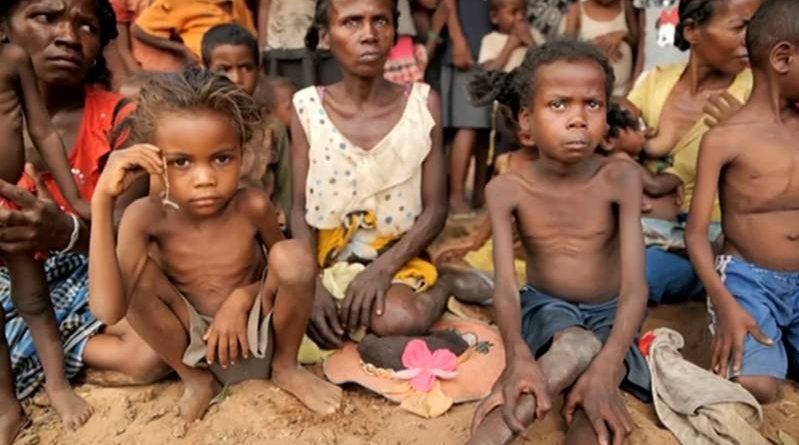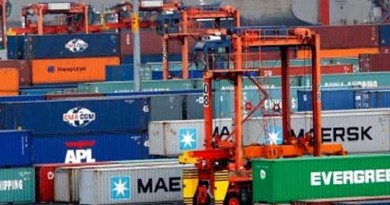7.7million people in Nigeria and 46.7million in West and Central Africa in dire humanitarian need
A staggering 46.7 million children in West and Central Africa are facing yet another year of dire humanitarian need. This unfortunate situation is primarily a result of ongoing conflicts and insecurity, particularly in the central Sahel region and the Democratic Republic of the Congo. Additionally, the massive displacement of women and children from Sudan to Chad has further exacerbated the crisis.
To address this urgent situation, UNICEF in the region has launched a compelling appeal for $1.89 billion in its 2024 Humanitarian Action for Children (HAC) appeal. This funding would enable UNICEF to reach an estimated 24.1 million children, an increase from the 23.5 million children reached in 2023.
The Regional Director for West and Central Africa, Felicité Tchibindat, emphasized the gravity of the situation, stating that the region is home to numerous underfunded emergencies and some of the most neglected humanitarian crises affecting children worldwide. She highlighted the fact that children are innocent victims of conflicts and lack the power to put an end to them. It is imperative that more efforts are made to find lasting solutions for the children in this region and provide them with hope as they navigate through chronic and forgotten crises.
One of the critical areas that require funding in 2024 is addressing malnutrition in the region. The prevalence of wasting in children under five years old remains alarmingly high, particularly in the Sahel countries. Certain areas in Burkina Faso, Mali, and north-west Nigeria are experiencing emergency levels of child wasting, surpassing 15 percent. In the period leading up to October 2023, a staggering 1.9 million children under five years old were admitted for treatment of severe wasting across nine Sahel countries. This represents a 20 percent increase compared to the same period in 2022. The increase in treatment services for child wasting was made possible through the generous funding from donor partners.
It is crucial that immediate action is taken to address the pressing needs of children in West and Central Africa. By providing the necessary funding, we can make a significant difference in the lives of millions of children, ensuring they receive the support and care they desperately need.
Insufficient funding remains a significant obstacle to providing humanitarian assistance in the region, as evidenced by UNICEF’s two most underfunded appeals globally originating from this area. The 2023 appeal for Burkina Faso’s humanitarian needs, totaling $227 million, received a mere 11 percent of the required funding. Similarly, the 2023 appeal for the Democratic Republic of the Congo, amounting to $862 million, was only 13 percent funded.
To address these pressing challenges, UNICEF has set forth its objectives for the 2024 appeal in West and Central Africa. The organization aims to administer measles vaccines to 6.1 million children, provide treatment for severe wasting to 3.5 million children aged 6-59 months, establish safe and accessible channels for 5.6 million individuals to report incidents of sexual exploitation and abuse by aid personnel, ensure access to sufficient and high-quality drinking water for 5.8 million people, and deliver UNICEF-funded humanitarian cash transfers to 266,500 households.
Given the escalating insecurity and threats faced by humanitarian workers in the region, UNICEF collaborates extensively with local actors who play a vital role in negotiating access to affected populations and fostering acceptance of aid. These local actors are instrumental in navigating the challenges posed by armed conflict and ensuring the effective delivery of assistance.
The ongoing armed conflict in northeast Nigeria continues to have a detrimental impact on the lives and prospects of 7.7 million individuals, with children constituting 60 percent of this population. Furthermore, armed violence, including clashes between farmers and herders, has resulted in the displacement of 474,000 people in the northwest region and 489,000 individuals in Benue State.
The humanitarian crisis in Burkina Faso has been escalating since 2019, leaving the population in a dire situation. Over 2 million people have been displaced within the country, while armed groups have imposed a de facto blockade on areas where more than 1 million people reside or have sought refuge. This blockade has severely restricted people’s freedom of movement and access to essential supplies.
In Cameroon, the situation is equally alarming, with 4.7 million people, including 2.5 million children, in urgent need of humanitarian assistance. The country is grappling with a complex and multifaceted crisis, including armed conflict leading to internal and cross-border displacement, intercommunal violence, disease outbreaks such as cholera and measles, and seasonal flooding.
The children of the Central African Republic continue to bear the brunt of violence, population movements, and natural disasters. Although there has been a slight decrease in insecurity and conflict-related violence, 2.8 million people, almost half of the country’s population, will require humanitarian aid in 2024. This includes 1.3 million children.
Chad has also been facing its own set of challenges, including a significant influx of Sudanese refugees and Chadian returnees since April 2023. With Chad hosting approximately half of all refugees in West and Central Africa, the country is grappling with protracted and rapid-onset multidimensional crises exacerbated by climate change. As a result, 7.6 million people in Chad will need humanitarian assistance in 2024.
The Democratic Republic of the Congo is currently witnessing the highest number of grave violations against children verified by the United Nations, making it a global concern. Additionally, the country also has one of the highest numbers of internally displaced people. The ongoing armed conflict in the region is having a severe impact on 14.9 million children, who are not only affected by recurring disease outbreaks and endemic sexual violence but also face growing access constraints. These factors further exacerbate their vulnerability and increase child mortality rates. Furthermore, the anticipated increase in military operations in 2024, coupled with the expected hostilities following the withdrawal of the United Nations peacekeeping mission, will further endanger the lives of children in the country.
Mali is currently facing an unprecedented and escalating humanitarian crisis. It is estimated that in 2024, more than 40 percent of the population, which amounts to approximately 8.8 million people, will require humanitarian assistance. The departure of the United Nations peacekeeping mission in Mali (MINUSMA) is scheduled to be completed by December 31, 2023. This withdrawal has already impacted the dynamics of the conflict and has led to the emergence of fresh hostilities.
The Niger continues to grapple with a combination of crises, including ongoing armed conflicts, climate-induced disasters, nutritional emergencies, and epidemics. These challenges have been further exacerbated by political instability following a military coup in late July 2023. In 2024, it is estimated that approximately 4.3 million people, including 2.4 million children, will be in need of humanitarian aid in the country.




